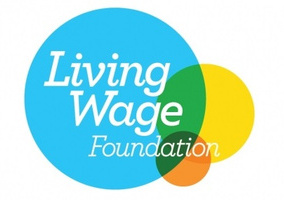Flexible working isn’t new to charities. Before the pandemic, the sector embraced options like job-shares, annualised hours and opportunities to work from home – all the things we’ve been hearing about in the media since Covid-19 hit in 2020. These working arrangements were old news for charities – it just took a global pandemic for other sectors to catch up.
Even back in the 1990s, when my husband and I both worked at charities ourselves, the sector was famous for flexible working – a key reason why it attracted so many women. This hasn’t changed, as today 70% of CharityJob’s candidates are women.
The return-to-office backlash
While remote working was rarer pre-2020, because many charities didn’t have the infrastructure, the pandemic accelerated a rapid digital transformation, creating more remote work possibilities. However, at the same time it became the norm across most other sectors, diluting one of the charity sector’s longstanding competitive advantages.
Now though, more than five years later, the conversation is coming full circle again. Every day I see headlines about corporate organisations wanting employees back in the office five days a week, despite that not being what workers want.
The evidence is clear: the CharityJob Salary Report 2025 revealed that our remote roles get seven times more clicks to apply than our onsite roles. And a recent survey found that 58% of UK workers would refuse a full return to the office.
Others showed that two-thirds of UK workers would be prepared to take a pay cut for more flexibility and a shorter working week and 28% would look for a new job if they could no longer work in a hybrid or remote setting.
A USP for the sector once again
Charities, however, are still embracing the flexible options that employees now view as non-negotiable.
The number of fully remote roles posted on CharityJob has been steadily increasing, and they now make up 12% of all our jobs. Hybrid working arrangements, meanwhile, have grown to 50% of roles (and these get four times more clicks to apply than onsite roles).
We know of many charities that have actually reduced or completely got rid of their office space since the pandemic, having proved they can work just as efficiently without the overheads. With other sectors pushing back, remote working is becoming a USP for the sector once again.
Why remote work works for charities
Remote working widens the talent pool, enabling charities to reach the best candidates with no location restrictions. It also supports underrepresented groups, such as carers, or people with disabilities, and generally accommodates different needs and working styles.
It can also align with a charity’s values. Many of the most passionate and committed charity employees have been directly affected by the cause they’re working for.
Depending on what that cause is, this could mean they are more likely to need flexibility for health, caring or lifestyle reasons.
Having had a taste of the benefits of remote working during the pandemic, such as improved wellbeing, more free time and better work life balance, remote working is now more desirable than ever for candidates, making it a powerful recruitment lever.
It’s great for a charity’s brand, helping to attract the best talent, even when higher salaries can’t be offered, and keeps employees engaged for longer, reducing turnover and associated recruitment costs.
The role of trust
I also think one of the reasons why remote and flexible working is so successful for charities is that they tend to have high-trust cultures.
People come to the sector to make a difference in the world, and are motivated by a lot more than money, meaning they are trusted to be productive, regardless of when and where they work – and it’s common sense that they’ll do their best at a time and place that best suits their circumstances.
During my 25 years of running CharityJob, I’ve seen the sector weather many storms. Charities are few and far between that haven’t felt the financial strain of recent years.
For those that are able to hire, the good news is that there are lots of amazing candidates out there at the moment. However, the rising cost of living and other growing demands on charities are making it harder than ever for them to achieve salary growth for candidates.
So, my advice is: if you’re struggling to fill a role because you can’t compete on salary in these tough times, then the best thing you can do is to offer remote working – it’s your superpower.
Related articles












